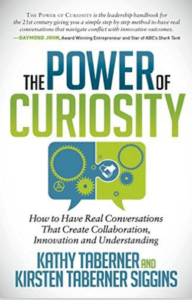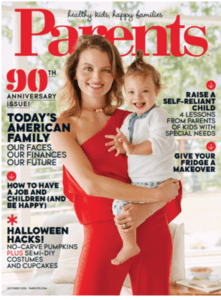 Curiosity has been on my mind a lot lately. Maybe you’ve noticed.
Curiosity has been on my mind a lot lately. Maybe you’ve noticed.
The October issue of Parents magazine includes my article “Eager Learners: Encouraging Your Child’s Curiosity at Home Will Spill Over Into Class” in the School Age ages and stages section. And last week, I wrote a post titled “How Curiosity Helps Us Connect.”
I’m fascinated by how this one concept can create a positive reverberation across our relationships, personal and professional, both online and offline.
While doing the research for the Parents article, I had a chance to connect with Kirsten Siggins, who was one of the sources for my article. Kirsten is the co-author of the book The Power of Curiosity: How to Have Real Conversations that Create Collaboration, Innovation and Understanding, which she wrote in collaboration with her mom Kathy Taberner.
The mother-daughter team are the founders of The Institute of Curiosity, a coaching and training organization that helps individuals learn and apply the skills of curiosity to their personal and professional relationships.
As a journalist, I’m constantly reading books in my research and many are excellent resources for parents. (You can check out the growing list of books I recommend in my resources section.) But The Power of Curiosity struck a particular chord with me because it parallels so much of my own thinking about building meaningful relationships in the digital age.
The book is an easy-to-read, comprehensive resource for anyone who wishes to enhance their communication IQ and maintain stronger relationships.
“Without curiosity, relationships fracture, and understanding and connection are lost. We live in a time where change is constant and our future depends on new possibilities and innovative outcomes.” ~ Taberner & Siggins, The Power of Curiosity
From a parenting perspective
The authors recommend active, curious listening. Engaged parents who listen carefully to their kids when they share their interests, problems and thoughts, build a deep sense of trust and help their kids appreciate the power of listening in their own relationships. As our kids get older and start pulling away from us, the connection we’ve nurtured from the beginning will matter all the more.
Furthermore, by role modeling our own spirit of curiosity and wonder in the world, we encourage our kids to grow into life-long learners, who are interested in engaging with the world around them (which I cover in my Parents article).
Helping us manage conflict
Taberner and Siggins also do an excellent job of explaining how curiosity can help us during challenging conversations, which many of us are facing right now during an incredibly tense and divisive political season.
“Curiosity is your most powerful tool—a tool you can use in any conversation to better understand what has been said, why it has been said, what is going on for the other person and what is going on for yourself. Curiosity is the key to resolving conflict so that relationships remain intact…” ~ Taberner & Siggins, The Power of Curiosity
The truth is, few of us were ever taught how to engage in conflict in a respectful and thoughtful manner. Conflict brings up powerful emotions. Online and off, many of us go into a confrontation with the goal of shutting the other person down. You know, what I mean—“I’m right. He’s wrong. And I’m gonna prove it.”
We’re all guilty of it at some point or another.
Other times, we dive head first into conflict without an understanding of what the outcome is that we’re even seeking. Meanwhile, in our quest for rightness, we forget that words can poison, and we look back with regret on the limping remains of a relationship that may not weather the tongue’s arrows.
Could curiosity solve all of our relationship troubles? Maybe not. But it could certainly help us make better sense of the world and of each other. I’m curious to find out. How about you?

